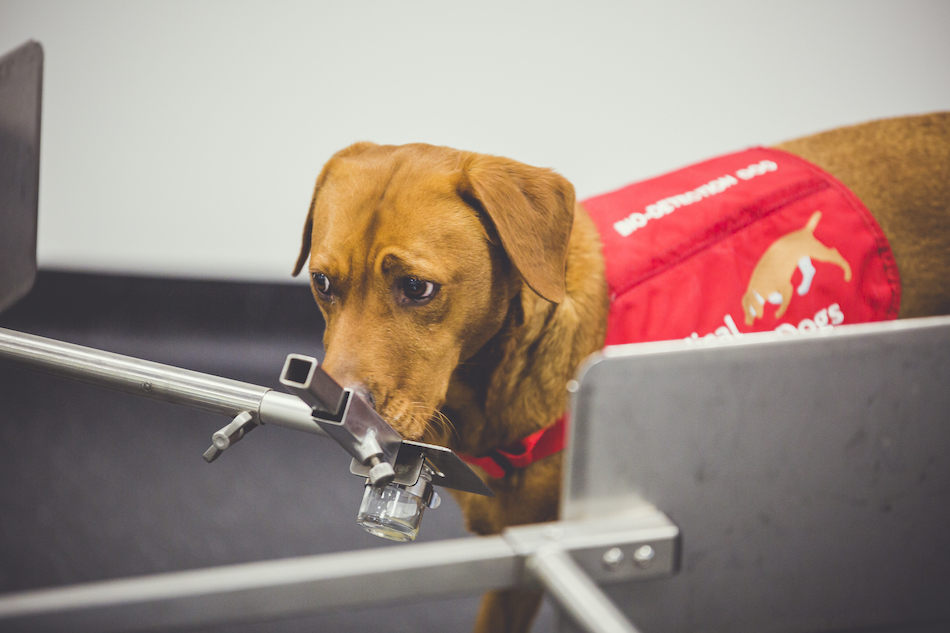Prostate cancer detection dogs
The results of our 2021 trial to train dogs to detect prostate cancer in urine samples, published in the highly respected journal, PLOS One, showed that they can detect the most aggressive forms of the disease with high specificity and sensitivity. Not only that, they can find it in urine from patients who have other diseases of the prostate.
The trial was the first time researchers combined three approaches – dog’s noses, artificial intelligence (AI)-assisted chemical analysis of the volatile organic compounds (VOCs) in urine samples, and microbial analysis of urine samples of men undergoing biopsy for suspected prostate cancer.
Results showed the dogs’ noses were 71% sensitive – the rate at which the dogs correctly identified positive samples and 73% specific – the rate at which the dogs correctly ignored negative samples including those with other diseases – when detecting Gleason 9 prostate cancer, the most aggressive kind. The dogs also correctly identified when 73% of patient samples did not have the disease.

The work of fox red Labrador, Florin and Hungarian wired-haired Vizsla, Midas, could pave the way for an urgently needed, more accurate and non-invasive method of early prostate cancer diagnosis which could support the current most widely used test – the PSA blood test. Our results are so encouraging because one of the challenges of that test is that other conditions can cause an elevated PSA but that does not necessarily mean you have cancer. This ground-breaking work now has the potential to be translated to an electronic device thanks to a collaboration with a quantum physicist at the world-famous Massachusetts Institute of Technology (MIT) and a Professor of Chemistry at The University of El Paso with those experts using our dogs’ data to build that technology.
Dr Andreas Mershin, Founder and Chief Science Officer of RealNose.AI says: “The work of MDD made me change my entire MIT laboratory’s research direction. It has made it clear that robust, scientifically unassailable evidence has been elaborately checked and well-presented showing that it is possible and indeed useful to train canines to diagnose disease via scent. Over the next two decades we continue to learn from the canine behavioral protocols developed at MDD how to create technologies that can detect and learn scents just like the dogs. The impact of MDD’s work is foundational and seminal to a whole new slew of emergent technologies.”
